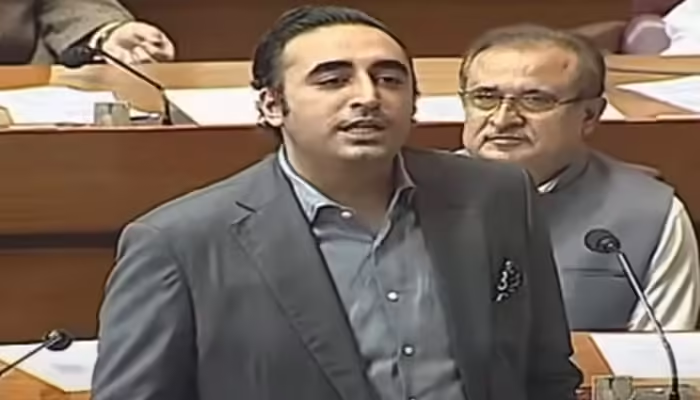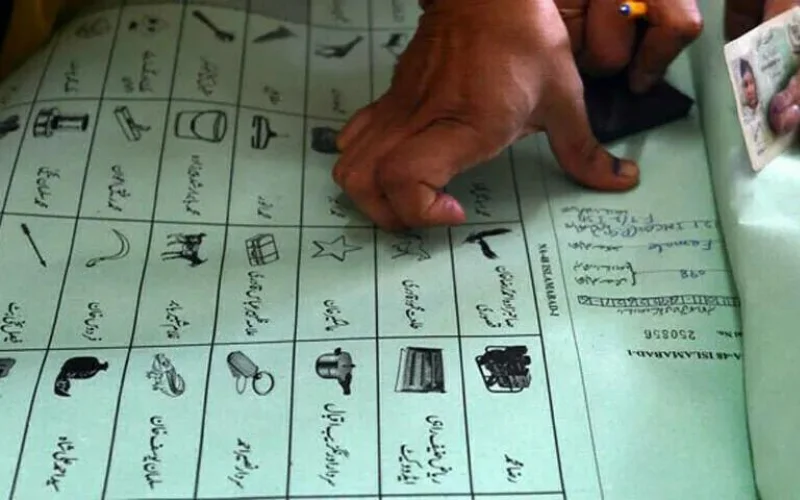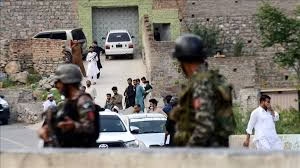Bilawal Bhutto-Zardari, Chairman of the Pakistan People’s Party (PPP), has strongly condemned the arrests of Pakistan Tehreek-e-Insaf (PTI) lawmakers during the recent crackdown and cautioned the coalition government, led by the Pakistan Muslim League-Nawaz (PML-N), about the consequences of targeting political opponents. Speaking in the National Assembly, Bilawal warned the government against following the same path of political victimization that the previous regime, led by Imran Khan, had adopted.
Bilawal expressed concern that if the current government continues to imprison political rivals as retaliation for past actions, it could lead to negative long-term repercussions. “If the government’s only job is to decide who should be put behind bars because Imran Khan did the same and spoiled the political climate, then you may be satisfied for a day, but tomorrow we will all find ourselves in the same jail,” he said, addressing the assembly.
The PPP chairman also criticized the behavior of PTI lawmakers, accusing them of disregarding parliamentary decorum and using the same confrontational rhetoric inside the assembly that they employ during public rallies. He emphasized the need for lawmakers to act responsibly within the parliamentary framework, regardless of the politics they engage in outside. “We decide whatever politics we want to do outside the house,” Bilawal said, adding that within the assembly, members have a responsibility to maintain a working relationship.
Bilawal further pointed out that while the PPP is part of the coalition government, there are differences of opinion between his party and the ruling PML-N, particularly on economic policies. However, despite these disagreements, the PPP continues to work with the government in various forums, recognizing the importance of constitutional supremacy. He stressed that no institution can function without respecting the constitution, indicating that political differences should not undermine the rule of law.
Taking aim at PTI’s founder, Imran Khan, Bilawal blamed him for creating a toxic political environment during his time as prime minister from 2018 to 2022. While he clarified that he harbors no personal grudges against Khan, Bilawal criticized the PTI for its aggressive actions and refusal to engage constructively. He advised PTI lawmakers to focus on defending their leader’s legal battles through legitimate means, rather than resorting to disruptive tactics.
Bilawal also urged PTI legislators not to abandon their parliamentary responsibilities, despite the difficult circumstances they face. He recalled how PTI members had refused to heed his advice during the Pakistan Democratic Movement (PDM) government and left both national and provincial assemblies in protest. Now, with their leader imprisoned, Bilawal suggested they should continue participating in the parliamentary process and work within the system, rather than isolating themselves further.
Reflecting on the PPP’s long-standing history with the PML-N, Bilawal mentioned the “Charter of Democracy,” a landmark agreement between the two parties. He lamented that certain elements within the political system have always sought to disrupt any potential consensus among major political forces. He pointed to past conspiracies, such as those allegedly orchestrated by former Chief Justice Iftikhar Chaudhry, to weaken political unity.
In an effort to bridge the growing divide between political factions, Bilawal called on the Speaker of the National Assembly, Ayaz Sadiq, to ensure that the parliament remains functional and plays a central role in resolving national issues. He stressed the importance of strengthening parliamentary institutions as a way to unite all political stakeholders under one platform, ensuring that the assembly can effectively govern and represent the people.
The PPP chairman’s speech came in the context of heightened political tensions following the arrest of several PTI lawmakers. Earlier that day, the government and opposition had reached a consensus to establish a 16-member committee tasked with addressing issues related to the house, particularly in the wake of the controversial arrests. These arrests were made in connection with a PTI rally held in Islamabad, where lawmakers were accused of violating the newly passed Peaceful Assembly and Public Order Bill, 2024.
The arrests had sparked outrage, with many accusing the Islamabad police and unidentified masked men of unlawfully detaining lawmakers within the premises of the National Assembly. In response to the security lapse, Speaker Ayaz Sadiq suspended the House’s Sergeant at Arms and four other security officials, highlighting the seriousness of the situation.
Bilawal’s criticism of the government’s actions serves as a reminder of the fragile nature of Pakistan’s political landscape, where the cycle of retaliation and victimization can easily spiral out of control. His call for responsible governance and respect for parliamentary institutions underscores the need for a more measured and constructive approach to political disagreements.



